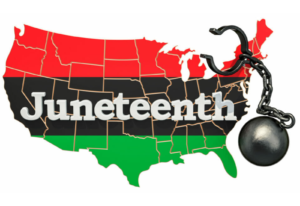Well, it looks like cannabis RICO lawsuits are not going to happen any time soon. As an update to this post I wrote in 2020, the Ninth Circuit has just affirmed the dismissal of two RICO claims brought by a cannabis business owner.
Background of Shulman v. Kaplan
As a quick recap, Plaintiff Francine Shulman took advantage when recreational marijuana was legalized in California and started a cannabis cultivation operation. At some point, she needed financial back and guidance, so she partnered with Defendant Todd Kaplan. They and their various business entities entered into agreements, which Shulman ultimately claims were used to defraud her out of her assets and licenses.
Shulman filed a lawsuit in the Central District of California, a federal court, because two claims involved violations of RICO and two other claims involved violations of the Lanham Act (both federal statutes). RICO, or the Racketeer Influenced and Corrupt Organizations Act of 1970, is a federal statute that provides for a civil cause of action for acts performed as part of an ongoing criminal organization (in addition to criminal penalties). We’ve written a ton of posts about RICO, but suffice it to say, it allows plaintiffs claiming a loss in property value to bring a civil suit for triple damages plus attorney’s fees against any “person” or “enterprise” that has a part in any pattern of “racketeering activity”:
RICO provides that it is “unlawful for any person through a pattern of racketeering activity . . . to acquire or maintain, directly or indirectly, any interest in or control of any enterprise which is engaged in, or the activities of which affect, interstate or foreign commerce” and proscribes conspiracy to do the same. 18 U.S.C. § 1962(b), (d).
Via an early motion to dismiss, Judge Birotte of the Central District dismissed Shulman’s two RICO claims, stating that she cannot sue under RICO because it would provide her a remedy for actions that are unequivocally illegal under federal law.
The Ninth Circuit opinion
In the January 18, 2023 Opinion and Order, the three-judge panel unanimously affirmed Judge Birotte’s ruling. They held Shuman lacked standing to bring RICO claims because in order to establish statutory standing under the statute, a plaintiff must show: “(1) that his alleged harm qualifies as injury to his business or property; and (2) that his harm was by reason of the RICO violation, which requires the plaintiff to establish proximate causation.” However, because Shulman’s “business or property” entails the cultivation, sale, and marketing of cannabis – which is all illegal under federal law – her “harm” wasn’t something that could then be remedied by federal law:
“Looking to RICO as a whole, it is clear that Congress did not intend “business or property” to cover cannabis-related commerce. When Congress enacted RICO, it expressly defined “racketeering activity” to include the “manufacture, importation, receiving, concealment, buying, selling, or otherwise dealing in” cannabis. 18 U.S.C. § 1961(1)(D); 21 U.S.C. §§ 802, 812. Because RICO’s definition of racketeering activity necessarily encompasses dealing in cannabis, it would be inconsistent to allow a business that is actively engaged in cultivation of and commerce in cannabis to recover damages under RICO for injury to that business.”
The Panel even went so far to compare cannabis to heroin because of their federally illegal status:
“Indeed, were we to substitute a drug like heroin for cannabis for the purposes of our analysis, the conclusion seems obvious: Congress could not have intended to allow a heroin dealer to recover RICO damages from someone who, by mail and wire fraud, stole a shipment of heroin. Otherwise, RICO would serve to protect the same variety of conduct it was intended to combat. For these reasons, we hold that Appellants lack a statutory right to bring a claim under RICO.”
In effect, the Ninth Circuit is affirming something akin to an illegality defense on steroids: because the statute specifically includes cannabis-related commerce within its racketeering definition, the Courts’ hands are tied and cannot help. While this has been the general trend for all RICO claims in the space, this newest Opinion makes clear things are not going to change any time soon.
For other recent articles about claims in this space, see:
- Cannabis RICO Lawsuits are Failing: Oregon and Colorado Updates
- When the Hunted Becomes the Hunter: Cannabis Companies Turn to RICO
And for a deeper dive, see:

























